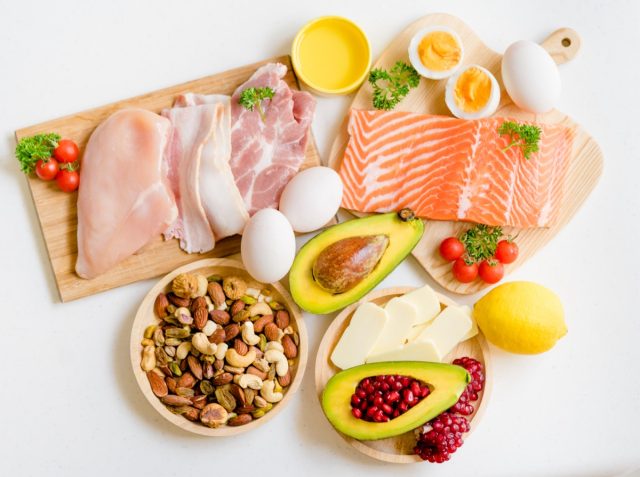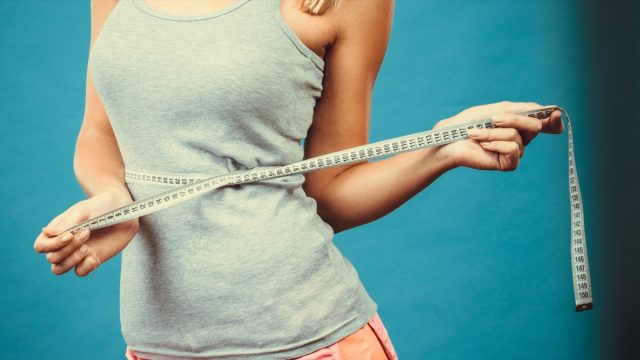7 Fat Loss Benefits of the 5:2 and Fast 800 Diets by Michael Mosley

The tragic passing of British television journalist Michael Mosley, whose body was found after a disappearance on a trip on the Greek island of Symi, has shaken both the broadcasting and weight loss worlds, as he was influential in both. He was most famous for popularizing the "5:2 Diet," in which you eat normally for five days and fast for two, and he wrote the "Fast 800" diet book series, which combines a low-carb Mediterranean diet with intermittent fasting. He also investigated obesity and espoused the benefits of overall healthy living. With his death in the headlines, we honor his legacy here by recapping his thoughts on how to live your best life. Here they are.
Understanding the 5:2 Diet

Mosley called his most popular diet "5:2" because "five days, you eat healthy in two days you cut the calories down to a quarter of their normal amount." As he said to Health Lab Online, he "found when I did that, the fat just kind of melted away. The internal fat just kind of went. In fact, I lost around nine kilos"—about 19 pounds—"in just under 12 weeks. And what was even better is my blood sugars came right down so that I'm no longer diabetic. That's four years ago." He added: "The great thing is you lose weight, but you can also keep the weight off by doing it sort of one day a week, what I call six one or just occasionally you let yourself go and then you go back to the five two diet and you bring it down."
What to Eat on the 5:2 Diet

Mosley advised focusing on foods high in protein and fiber, such as fish, meat, and vegetables. Whole grains like whole wheat bread, pasta, brown rice, and quinoa are rich in fiber. Lean proteins such as chicken, turkey, eggs, and fish are recommended. Green leafy vegetables, including kale and spinach, are packed with vitamins and minerals. Other high-fiber options include legumes, lentils, oatmeal, and beans. Healthy fats from nuts, seeds, olive oil, avocados, and oily fish are also beneficial. For beverages, water, black coffee, and herbal teas are suggested on fasting days.
Add Exercise to the 5:2 Diet

Mosley added high-intensity interval training, aka HIIT, to the 5:2 diet. "It's not anywhere near as scary as it sounds," he told Health Lab Online. "It's form of exercise, which I do on an exercise bite. And I get on it and I pedal away and I do about a 20 seconds, breather, 20 seconds, breather, 20 seconds, breather. That's about one-minute of intense exercise. And that's it. I do that three times a week. And astonishing, as it may sound, that has multiple health benefits."
Benefits of the 5:2 Diet

"Can intermittent fasting improve your health? Losing weight and being physically active help lower your risk of obesity-related diseases, such as diabetes, sleep apnea and some types of cancer. For these diseases, intermittent fasting seems to be about as beneficial as any other type of diet that reduces overall calories," says the Mayo Clinic. "Some studies suggest that alternate-day fasting is about as effective as a typical low-calorie diet for weight loss. That seems reasonable because reducing the number of calories you eat should help you lose weight."
How the Fast 800 Diet Works

Mosley considered the Fast 800 diet an "evolution" after the 5:2 diet, saying it's more sustainable. "This is sort of a stage process," he said of the plan, to BBC Breakfast. "The first stage is rapid weight loss and that is 800 calories a day. And that's based on a couple of really big studies which came out last year." How long do you have to restrict calories so religiously? "Two to three weeks at the minimum," he said. " And some people actually continued to do it for up to 12 weeks because they did a study based in the north of England, professor Roy Taylor and his team. It was 800 calories a day for up to 12 weeks and average weight loss of around 14 kilos"about 30 pounds—"and half the people—these were type two diabetics—and half the people were able to come off all medication and return their blood sugars to normal. There was another study done by Oxford," he added, "where they did it not in diabetics," and it reached the "same sort of figures, around 10 kilos"—about 22 pounds—"sustained over a year."=
What to Eat on the Fast 800 Diet

"So for breakfast it's eggs," he told the BBC. "I've got asparagus there. The book basically has a range of recipes, but I'm a huge fan of eggs because eggs kind of fill you up and you can have scrambled eggs, boiled eggs, however you want them. Sometimes I have it with ham or a bit of salmon or something like that. So that's breakfast. No toast, I'm afraid. Plenty of coffee, tea and things like that. Plenty of fluid. I'd encourage anybody who's doing a low calorie diet to drink lots and lots of fluid because you're going to dry out." He adds: "It's a low carb certainly. And that's one of the things which is very clear now, is that going on a low-carb diet is also known as a ketogenic diet. What it does is it means your body starts to burn fat because your body runs on two different fuel systems. It runs on sugar and it runs on fat. And only when the sugar starts to go down do you switch to fat mode. And that normally takes 10 to 12 hours unless you're on a relatively low-carb diet. Now, I wouldn't recommend being low-carb all the time. I think there are lots of good reasons for eating carbs." He says, "The veggies all carbs, but it's kind of healthy carbs."
Why You Crave Bad Food, According to Mosley

We desire food that is bad for us because "the food manufacturers have worked it out like that," he told the House of Wellness. "They have worked out what our weaknesses are. It's exactly like the smoking industry. The tobacco industry worked out pretty early on how to get people hooked. They knew nicotine was addictive and that's what they flogged and that's what the food industry is doing. It's producing these hyper-palatable foods, foods that we just cannot say no to." Mosley said sugar is addictive. "When I start the bar of chocolate, I do not stop. I know it is bad for me. I know it's going to make me fat, I'm a diabetic, but I cannot eat one square of chocolate. My wife can do that. I eat one square, two square three squares, and then unless I stick in the bin, I will go on to the bitter end."
The Ultimate Success Story Was Mosley Himself

Mosley "got involved in all of this because four years ago I went to see my doctor and had a blood test and she came and told me that I was now a type two diabetic, which was a bit of a shock," he told Health Lab Online. "I didn't think I looked particularly overweight or anything like that, but it turns out when I had a scan, I'm what's called a toffee—thin on the outside, fat inside. And my doctor was keen that I should go off and have medication, but I would do something different. So I persuaded the editor of the BBC Science Horizon to let me go and do something called intermittent fasting. And the idea behind that is that you cut your calories a couple of days a week." And clearly, it worked. May he rest in peace.




